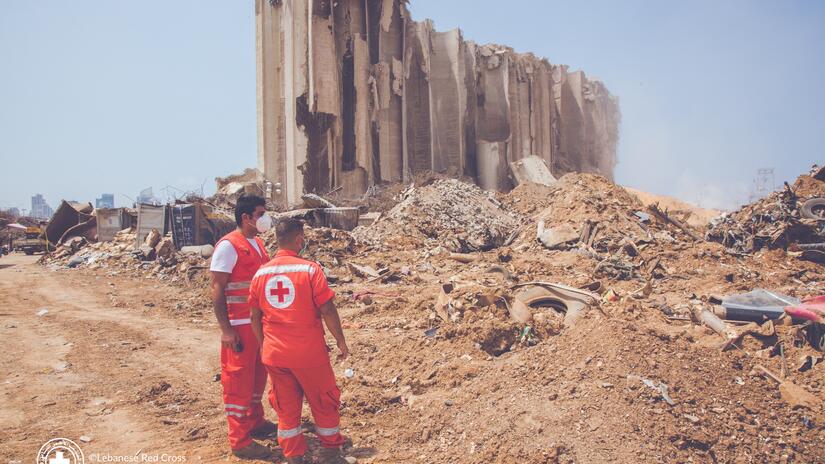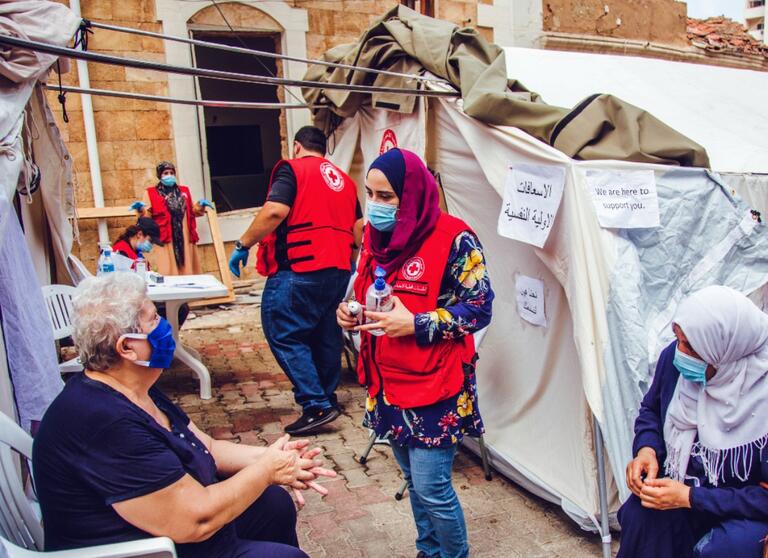The Lebanese Red Cross (LRC) and the International Federation of Red Cross and Red Crescent Societies (IFRC) appeal for continued global solidarity with the Lebanese people who are suffering from a multi-layered humanitarian crisis. Six months after the Beirut Port Explosion, people have become poorer and sicker, as well as are in urgent need of humanitarian support to cover basic necessities such as food and healthcare.
In addition to the economic crisis and civil unrest, Lebanon is witnessing high numbers of COVID-19 infections. Currently, the LRC hotline receives more than 4,000 calls every day, related mostly to coronavirus patients. While the number of people infected by COVID-19 keeps increasing, hospitals are reporting near-full occupancy in beds and intensive care units. In response to this situation, LRC has launched an initiative to provide home oxygen machines to COVID-19 patients who suffer from respiratory difficulties but can’t find a place in a hospital.
“We call on donors to support our life-saving services, as we have lost more than 50% of our funding as a result of the economic crisis and the devaluation of the local currency,” says Georges Kettaneh, LRC Secretary General. “LRC already had a major responsibility in providing ambulance and blood services throughout Lebanon, and now we have been called upon to do more and more. Our volunteers and staff are rising to the challenge, but for us to continue doing it, we need support from partners and donors. We need all the support possible – now more than ever,” urges Kettaneh.
IFRC is working closely with Lebanese Red Cross who is witnessing a large increase in the demand for its life-saving services. “Every day, the number of Lebanese people who need assistance is increasing. The needs are immense, and many are unmet,” says Cristhian Cortez Cardoza, Head of IFRC Lebanon Country Office. “The solidarity with Lebanon has been most appreciated, but more support is still needed,” Cardoza concludes.
Since the explosion, Lebanese Red Cross has provided food parcels, hygiene kits, primary healthcare services, blood units and ambulance services to more than 250,000 people. In addition, Lebanese Red Cross committed 20.5 million USD to support 9,800 most vulnerable affected families by providing them monthly 300 USD financial assistance for 7 months to manage their basic needs. By the 20th January 2021, the affected families had received the third round of direct financial assistance.
The explosion at Beirut port rippled through several areas of the capital, damaging homes of more than 300,000 people, killing more than 200 and wounding thousands.
Donations to Lebanese Red Cross can be made here.

37,000,000
CHF Needed to help most vulnerable

10,639,772
CHF currently funded



